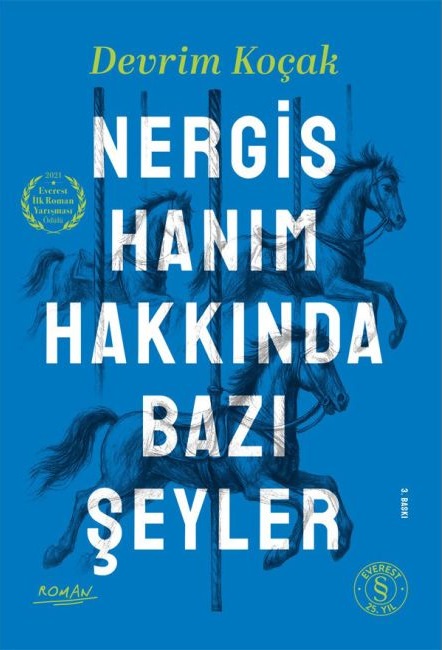Solidarity in the Face of Suffering in Albert Camus’s The Plague: Humanity’s Salvation or Temporary Consolation?
Albert Camus’s novel The Plague (La Peste, 1947) deeply questions not only the physical destruction of an epidemic disease, but also the absurd nature of human existence and how individuals seek meaning in the face of this absurdity. Through the plague outbreak in the city of Oran, the novel examines humanity’s attitudes towards pain, death and meaninglessness, particularly solidarity. In this context, the question of whether solidarity is sufficient for humanity’s salvation in the face of pain or whether it only provides temporary consolation is directly related to Camus’ philosophical stance. To answer this question, we will examine Camus’ understanding of absurdism, the role of solidarity in the novel and its relationship to humanity’s salvation or consolation from a philosophical perspective.
Camus’ Absurdism and the Ontological Dimension of Pain
Camus’ philosophical framework is based on the absurdism he clearly presents in The Myth of Sisyphus. The absurd arises from the conflict between man’s search for meaning in the universe and the universe’s indifference to this search. In the novel The Plague, the epidemic embodies this absurd situation: The plague emerges without reason, randomly takes lives, and imposes a pain on people that they cannot control. In this context, pain ceases to be a mere physical phenomenon; it becomes an ontological reality that points to the meaninglessness of human existence.
According to Camus, there are three basic reactions that a person can give to the absurd: suicide (giving up the search for meaning), taking a leap of faith (imposing a metaphysical meaning), or continuing to live by accepting the absurd. In The Plague, solidarity emerges as a reflection of this third reaction. While characters such as Dr. Rieux, Tarrou, and Rambert struggle against the plague, they are aware that their struggle will not be able to stop the epidemic. Nevertheless, this struggle is a form of rebellion against the absurd. However, does this rebellion provide salvation for humanity, or is it merely a consolation that alleviates suffering?
The Role of Solidarity: More Than a Rebellion?
In The Plague, solidarity is embodied by the characters uniting around a common cause. Dr. Rieux is at the forefront of the medical fight against the plague; Tarrou organizes volunteer health teams; Rambert remains in the city, sacrificing his personal happiness, and takes part in the struggle. This solidarity is a reflection of Camus’s principle of “respecting what is in humanity.” Solidarity enables individuals to escape loneliness and helplessness and develop a common sense of humanity. However, the limits and effects of this solidarity constitute the essence of our question.
Solidarity functions as a kind of ethical stance in The Plague. Camus argues that in the absence of God or absolute meaning, humanity must create its own values. Dr. Rieux’s words, “What is important to me is to act like a human being,” reflect the essence of this ethical stance. In this context, solidarity is part of man’s effort to construct his own meaning in the face of the absurd. However, the end of the plague is not the triumph of this solidarity, but a temporary retreat of the disease. By reminding us at the end of the novel that the plague can always return, Camus implies that solidarity does not provide ultimate salvation. This supports the idea that solidarity is a temporary consolation.
On the other hand, a perspective is also possible that argues that solidarity is more than consolation. Although Camus’s absurdism denies absolute salvation, it suggests that man can create his own dignity and worth through rebellion. Solidarity is a collective form of this rebellion, breaking the loneliness of individuals and giving them a sense of community. Tarrou’s search for “a sainthood without saints, without God” reflects this deeper meaning of solidarity. Even if solidarity does not eliminate the plague, it allows people to preserve human dignity by supporting each other in the face of suffering. This is perhaps the closest form of “salvation” that Camus offers: not an absolute victory, but a meaningful stance in the face of meaninglessness.
Solidarity and Consolation: An Existential Dilemma
The question of whether solidarity is consolation or salvation points to a fundamental dilemma in Camus’s philosophy: how far can one go in the face of the absurd? Solidarity relieves suffering, gives people the strength to fight, and reduces loneliness. However, the fact that the plague can reoccur reminds us that this solidarity is temporary. Camus presents this transience not as a defeat, but as a reality in which humanity must accept that it is in a constant struggle.
Philosophically, to view solidarity as consolation would be to underestimate its effectiveness. Consolation is often understood as superficial relief, whereas solidarity in The Plague is a deep ethical and existential commitment. Solidarity enables a person to rebuild their humanity while confronting the absurd. However, this process of construction does not point to a final salvation, but to a continuous effort. Camus’s philosophy does not offer absolute solutions; instead, it emphasizes the capacity of man to create meaning even in the face of suffering.


